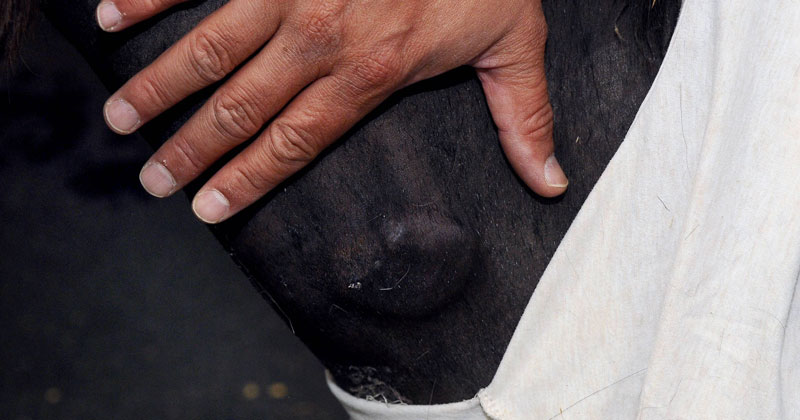23 Jun 2023
Veterinary surgeons from across the country were involved in implanting the device into Prince Buttons at Rainbow Equine Hospital, in one of only a handful of procedures in donkeys in the world.

Rainbow Equine Hospital vet Gemma Tyner with Buttons.
Dinky donkey Prince Buttons (Buttons) was referred to Rainbow Equine Hospital in Malton when his owner noticed he was having episodes where he would stagger and collapse.
Following tests across two days, Rainbow vet Gemma Tyner – part of the equine internal medicine specialist team – diagnosed bradycardia, with her noting the heart would block for up to 24 seconds at a time.
Dr Tyner said: “Buttons’ condition was very serious, and that is a very long time to go without a normal heartbeat. Unfortunately, it’s not something that can be managed with medication and, sadly, euthanasia had to be considered.
“If left untreated, Buttons’ health would continue to deteriorate because his heart would gradually weaken and his other organs would begin to fail as well because of blood not circulating to them properly.
“However, I was able to tell Buttons’ owner the good news that there was an option to save his life, which was fitting a pacemaker.”

With the procedure rare, Dr Tyner put together a crack team of vets to treat the five-year-old miniature donkey, with Celia Marr – a specialist in internal medicine at Rainbow’s sister practice, Rossdales Veterinary Surgeons in Newmarket – drafted in.
Chris Linney and Julie Kavanagh, from Paragon Veterinary Referrals in Wakefield, also made the trip north, bringing with them their expertise in performing the procedure in dogs.
The pacemaker – the size of two matchboxes, was inserted in a pocket in Buttons’ neck, with wires connecting to his heart. X-rays and ultrasound scans allowed them to check everything was in the correct place.
Dr Tyner said: “The pacemaker has been programmed to activate if Buttons’ heart rate drops lower than 30bpm. It also sends an alert if the heart regularly drops below this rate.
“We are absolutely delighted how successful the operation was and with Buttons’ recovery. There have been no complications with sustained placement of all the wires and the pacemaker. The pacemaker, which should last Buttons at least 15 years, has been extremely well tolerated by him.
“He hasn’t collapsed since it was fitted, which means it’s doing its job, and hopefully it will allow him to enjoy a long and happy life.”